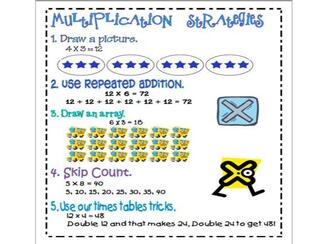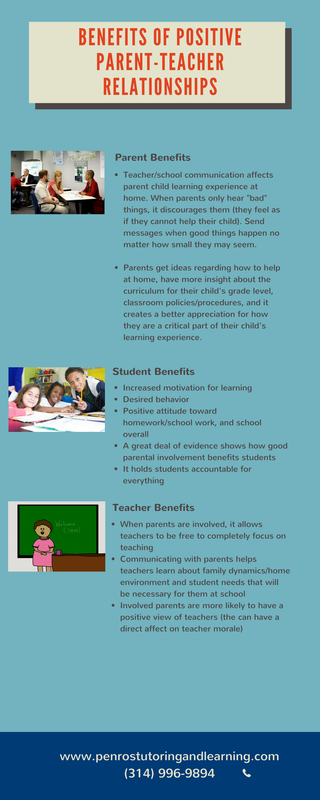|
Without achieving proficiency of multiplication facts, a student's difficulty may be compounded when they begin studying division, fractions, and solving problems with multi-digit numbers. That difficulty will likely come in the form of spending a considerable amount of time with basic calculations and not having much time for understanding new concepts.
Math Fact Fluency creates students who are confident in their abilities. Before learning multiplication facts, it is important for students to understand multiplication as "repeated addition". During my 20 years in the classroom, I always wanted my students to achieve the goal of "instant recall" (the ability to retrieve the answer instantly or within 3 seconds. This will vary based on a student's processing ability, but I have been witness to many students achieving this goal. These days there are a variety of ways for students to practice leaning their multiplication facts without using flashcards and rote learning (writing a particular fact/facts repeatedly). Here are a few suggestions for helping your child improve: 1. Create arrays using manipulatives (e.g. Unifix Cubes, Counter Disks) 2. Play Multiplication War 3. Use Multiplication Coloring Worksheets 4. Playing online multiplication games (e.g. https://www.multiplication.com/games) You can also get get creative and come up with your own multiplication game! Good luck!
0 Comments
For most children, summer vacation is a time for staying up late, sleeping in, playing video games for hours each day, and doing as much of “nothing” as is humanly possible!
Students often put off reading for too long and end up trying to read everything within two weeks before the first day of the new school year. Parents should be sure their children are not falling into the depths of summer vacation and experiencing “summer slide”. Extensive research has been done, and the results conclude that children who read on a regular basis during the summer can improve their reading level and fluency. Lack of or no reading during the summer can make a student’s transition to the next grade level somewhat difficult. So, why not find creative ways to get your child engaged in reading during summer vacation? It can only help! Here are some tips regarding how to help your child become committed to reading during the summer and school year as well.
For schools that started shortly after the beginning of August, Parent-Teacher conferences are just around the corner, and schools that started a bit later will have conferences shortly after. Sometimes conferences can be stressful for parents and teachers alike if a positive relationship and/or consistent communication has not been established regarding a student's learning experience. Everyone benefits from positive Parent-Teacher relationships. Below is a graphic that illustrates how these relationships allow for a more pleasant school year for each individual involved.
Every new school year brings about excitement and anxiety for students and their parents. Parents become preoccupied with making sure their child is ready for the next step in their educational adventure. Simultaneously, their child can become overwhelmed with thoughts of meeting new classmates, having a new teacher, and studying new concepts. Here are some tips to make the transition from summer vacation back to school as smooth as possible.
1. Get back into your bedtime routine- Going to bed late and waking up late was fun during the summer. However, when the alarm sounds the morning of the first day of school most likely you will not burst out of bed eager to get to school. Start going to bed at your normal bedtime about 1 to 2 weeks before the first day of school. This will help you wake up well rested and ready for school. 2. Shop for school supplies early- Many stores start their Back-to-School sales around the middle of July. Staples, Walmart, Target, Office Max, Office Depot, etc. have great sales on all of the essential school supplies. You may be able to get enough supplies to last for most of the school year. 3. Promote good study habits immediately- Teaching good study habits, rewarding results instead of effort, and teaching about quality work will provide a solid foundation for success for your child. Develop an organizational plan that you can implement starting day one. Decide where you will place notes, homework assignments, handouts etc in your binder/folder. Also think about what the best type of daily planner to use. Some teachers order them for the entire class, but many do not. Always good to be prepared. 4. Equip your child with social skills for the classroom- Most children are nervous about the start of each school year. Even if they will have most of the same classmates, they will will be nervous about having a new teacher. Practicing proper greetings/introductions is a good way to help ease their mind. 5. Discuss bus safety - If applicable, discuss bus safety with your child. For example, boarding the bus one person at a time, quickly finding a seat, remaining seated during the bus ride, etc. 6. If you haven’t completed any required summer assignment, start now- It is nice to have a long summer break, but studies have shown that it is beneficial to continue doing educational related activities during the summer to avoid learning loss. It is good to start the year strong and feel comfortable with the lessons being taught. In addition, procrastinating to do any required work only adds unnecessary stress and can result in beginning the year on a bad note. So if you have work to complete, be responsible, and get it done. |
AuthorRandy Sally Archives
June 2023
Categories
All
|







 RSS Feed
RSS Feed
